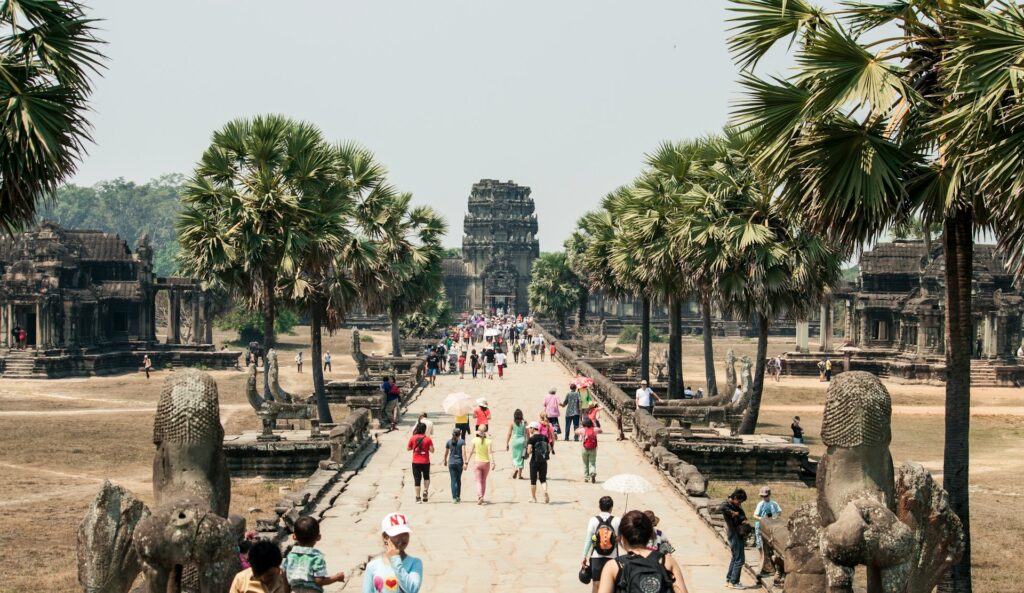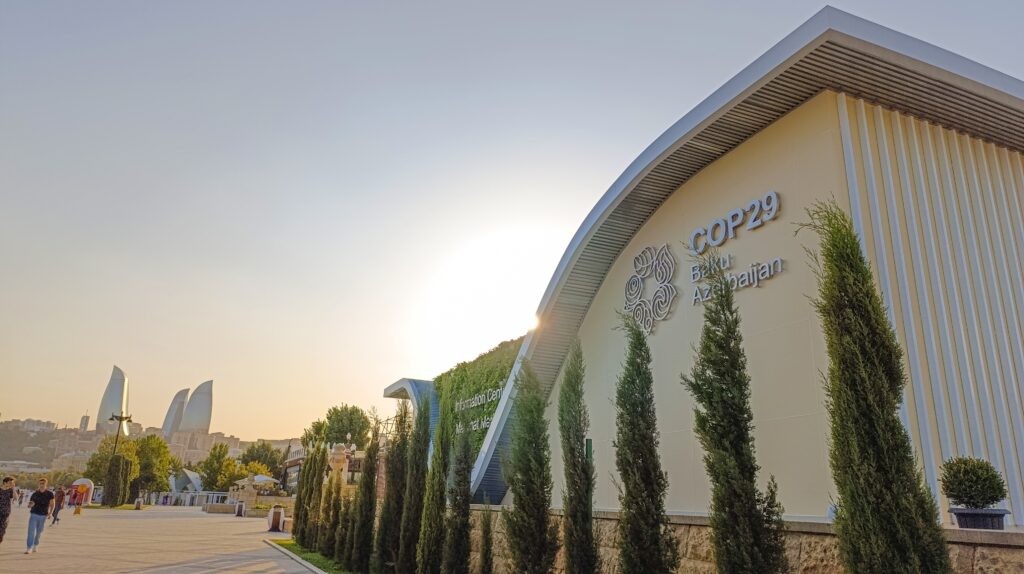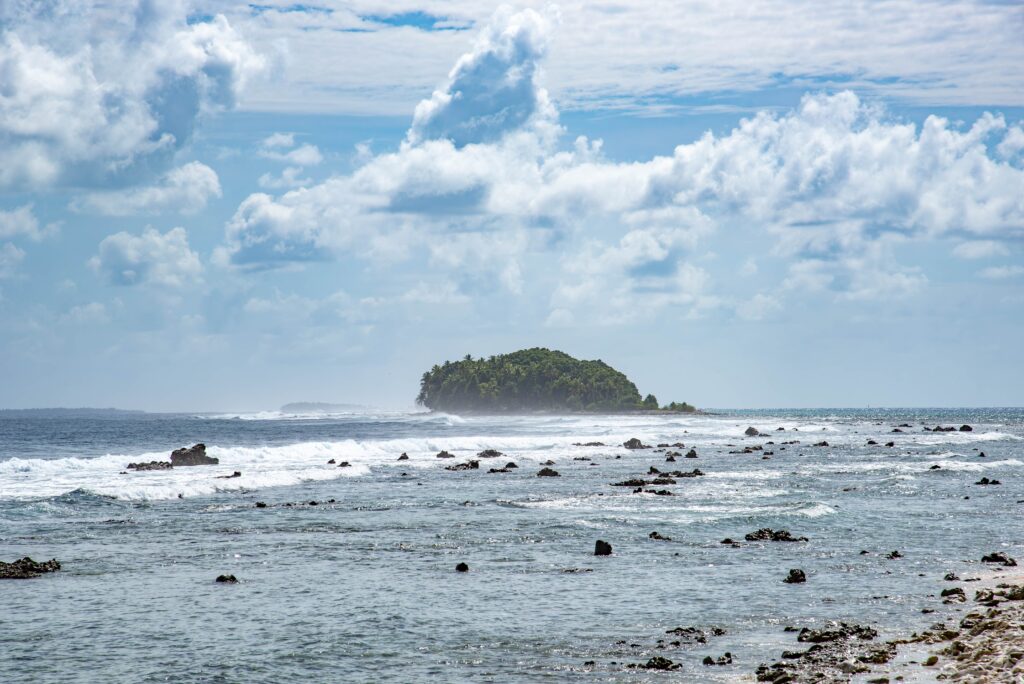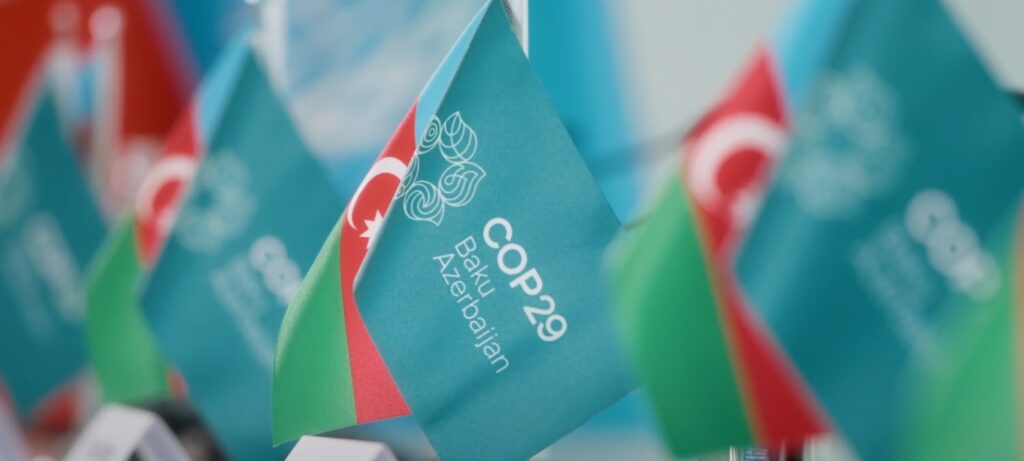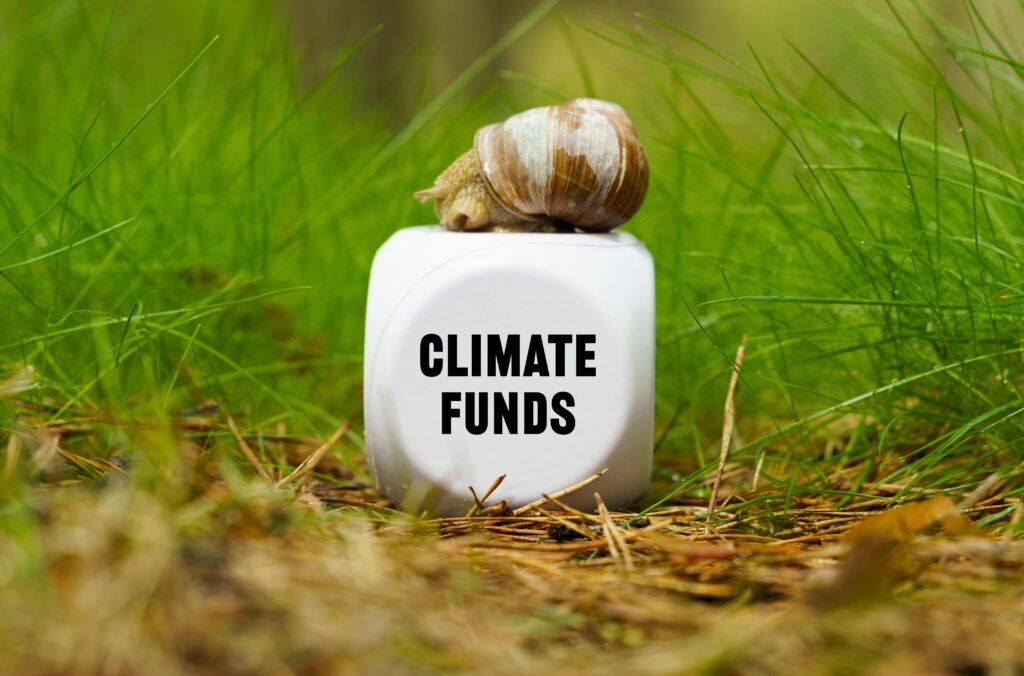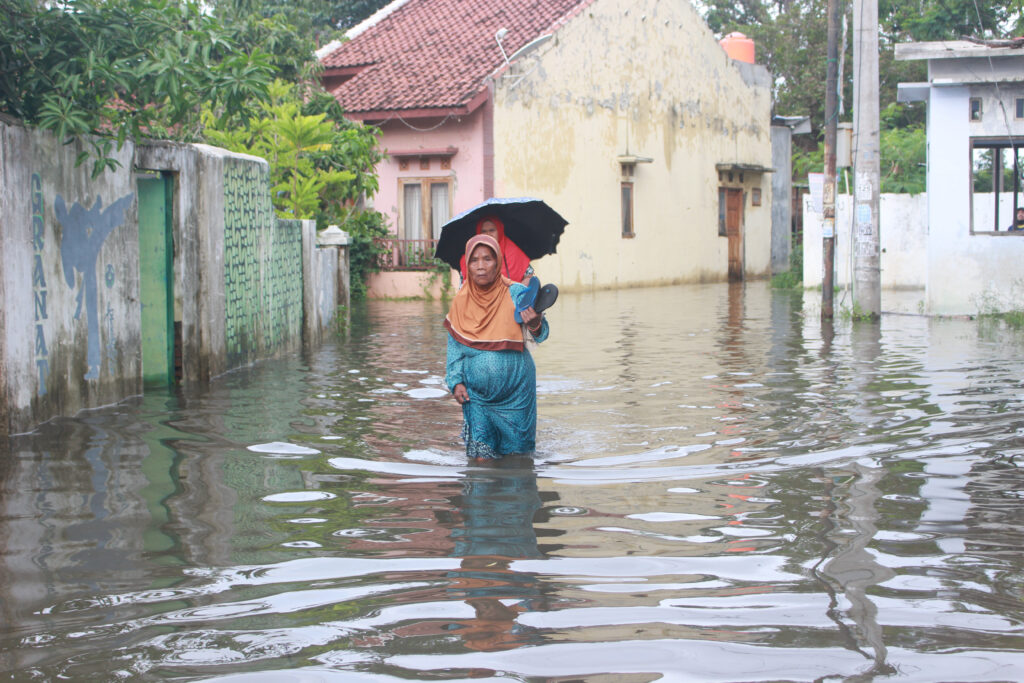Indigenous peoples and underrepresented groups were promised to be the voices of COP28, COP29 and COP30. At COP28, Indigenous peoples were outnumbered by seven to one by fossil fuel lobbyists. At COP29 2024, the Azerbaijani COP29 Presidency didn’t include any women in its initial organising committee, while the Vatican, Russia and Saudi Arabia opposed discussions over women’s rights.
COPs have long been failing to address the needs of local communities in small island states and least-developed countries, as well as Indigenous peoples, women and youth, which are all disproportionately impacted by climate change.
Unless COP30 in Brazil breaks the mould, the continued ignorance toward these groups will prove costly not only to their well-being but also to the global chances to tame the climate crisis.
The Crucial Role of Indigenous Peoples
According to the UN, while Indigenous peoples occupy 20% of the world’s land surface, they nurture and take care of 80% of the biodiversity. The fact that 36% of the world’s remaining intact forests are on Indigenous peoples’ lands further strengthens their outsized impact. The World Bank notes that since deforestation is responsible for 10% of global warming and massive loss of ecosystems and habitats, Indigenous peoples’ forest stewardship has become increasingly critical.
Indigenous peoples represent around 6% of the global population, living across over 90 countries and speaking more than 4,000 languages. Yet, despite this rich diversity, Indigenous groups worldwide face similar challenges.
According to the UN, although Indigenous peoples make up around 5% of the global population, they represent 15% of the world’s poorest and a third of the rural poor. Amnesty International states that they are often subject to human rights violations, discrimination, eviction from ancestral lands and restricted access to education, health care and essential services. As a result, Indigenous peoples face a higher risk of living in extreme poverty, illiteracy and unemployment, while their life expectancy is up to 20 years lower compared to non-Indigenous people. Indigenous women have higher rates of maternal mortality, teenage pregnancy and sexually transmitted diseases. They are also more likely to suffer violence.
Despite contributing a very small proportion to global carbon emissions, Indigenous peoples are also among the first to face the direct consequences of climate change, according to the UN.
Furthermore, these groups are disproportionately impacted by fossil fuel exploration on their lands. As their guardians, Indigenous communities should be central in discussions around climate mitigation, adaptation, cultural heritage, nature conservation and restoration.
Yet, they are often on the sidelines, with limited access to decision-making processes within global climate and nature-preservation conferences.
Lacklustre Progress at COP29 Azerbaijan
During COP29 Azerbaijan, parties held a panel session titled SIDS’ Ecosystems and Communities Amid Climate Change to discuss the threat that climate change poses to small island developing states. The panelists, mostly from affected regions, focused on issues such as sea-level rise, extreme weather events and losses of vital ecosystems and socioeconomic impacts. They also emphasised the need for climate-resilient infrastructure and to enhance local adaptation capacity and develop strategies integrating ecosystem protection through community-led solutions.
During the first day of COP29 Baku, parties adopted key rules covering the trade of carbon credits. This eases the establishment of a UN-governed system for countries to buy credits for removing or avoiding emissions through activities abroad, such as planting trees elsewhere, and to count the progress toward their own emissions targets.
However, the measure faced criticism from Indigenous communities, describing it as a “false solution” that prioritised economic interests over protecting their rights and the natural ecosystems they guard. They condemned the parties’ failure to agree to a concrete fossil fuel phaseout plan. Also, they urged direct, equitable public climate financing rather than “volatile market-based approaches” like carbon trading, forest offsets and carbon capture and storage.
To the frustration of Indigenous communities and underrepresented groups, not much else happened during 2024 UN climate change conference, COP29.
While COP27 and COP28 integrated cultural heritage into climate adaptation strategies, they fell short of designing adequate funding and strategic frameworks for addressing non-economic losses, including intangible heritage. Furthermore, at COP28, a group of environmental ministers issued an open letter underscoring the importance of respecting the rights of Indigenous peoples and local communities and urging their engagement in the design of climate action strategies. COP29 was supposed to build on that but failed.
The proposed final text drafts emphasised and highlighted the importance of including Indigenous knowledge, ensuring gender balance, respecting human rights and promoting dialogue with vulnerable groups and social partners, including Indigenous peoples, migrants and internally displaced people, to advance a just and inclusive energy transition. Parties also underscored the importance of climate financing mechanisms being human rights-based and gender-responsive and designed to “safeguard the rights of Indigenous peoples and consider the needs and priorities of the other people and communities on the front lines of climate change, including women and girls, children, youth, persons with disabilities and workers”.
At the time of writing, the COP29 final text hasn’t been finalised. It remains unclear whether it will provide more clarity and concreteness. However, judging by the indications from the climate talks, there are hardly any reasons for hope.
Indigenous Peoples Took the Matter Into Their Own Hands at COP29 Baku
While a group of developed countries pledged USD 1.7 billion to support Indigenous peoples at COP26, just 7% reached Indigenous organisations directly without intermediaries.
Frustrated by the lack of progress at previous climate conferences, Indigenous leaders from Australia, Brazil, Eastern Europe and the Pacific used the stage of COP29 to launch the Troika of Indigenous peoples. The initiative aims to strengthen the focus on Indigenous peoples across COP29, COP30 and COP31, ensuring they will have a prominent role in the upcoming climate dialogues. Alongside the International Indigenous Peoples Forum on Climate Change, the group will pursue goals such as expanding Indigenous peoples’ influence on global forums and local levels, pressuring wealthy nations to meet their climate finance responsibilities, advocating for phasing out fossil fuels and aligning national targets with the Paris Agreement.
Indigenous peoples impacted by climate change also raised the alarm about their problems – from lacking safe drinking water and adequate food supplies to losing the battles to save their homes from rising sea levels and preserving forests from corporations and wildfires. However, they didn’t only make demands. They also offered their knowledge and readiness to discuss the solutions they are applying in their communities, including planting trees, repopulating streams and rivers, restoring soil and preserving wildlife.
A group of organisations from Central Asia and the Caucasus region, led by the Global Forest Coalition, issued a Baku Forest Declaration to urge parties to prioritise forest protection, Indigenous peoples’ rights and climate justice. The declaration demands that the COP29 Presidency and countries comply with the Paris Agreement and recognise natural forests as crucial biodiversity ecosystems. It also calls for protecting Indigenous peoples’ rights and recognising their knowledge on forest conservation. The groups urged COP29 parties to prioritise community-based, gender-just and human rights-based climate policies.
Nearly 70 NGOs, business coalitions, Indigenous and local community groups and influential individuals issued a collective COP29 Nature Statement, urging the COP29 Presidency and parties to pledge ambitious nature finance commitments in the NCQG. Expressing its concern about the lack of progress on nature financing, the group called on governments to scale financing, demonstrating their recognition of the importance of nature-based solutions, which can provide up to a third of the required climate mitigation by 2030.
COP29 2024 Failed to Prioritise Women’s Rights, Struggles and Role in Fighting Climate Change
“Equal participation is a right,” said UN climate chief Simon Stiell, urging parties to advance a “gender perspective in climate action and climate financing”.
Yet, just eight out of 78 seats at the climate decision-making table at COP29 had women in them, while the Azerbaijani COP29 presidency only included women in its organising committee after public backlash.
At the start of the conference, the EU published a letter stating that the world’s ability to address the climate crisis depends on the “commitment to the empowerment of women and girls, in all their diversity”. Despite the efforts of the bloc and the dozens of other countries that backed the letter, it failed to draw support from some conservative states and nations.
Parties at COP29 were due to update a 10-year-old UN action plan, also known as the Lima Work Programme on Gender, to take into account the opinions of women and channel more money toward them.
However, the Vatican, Saudi Arabia, Russia, Iran and Egypt led a backlash against women’s rights and derailed progress due to the inclusion of the word “gender”, expressing concerns it could include transgender women. In addition, they wanted the exclusion of references to gay women, the BBC reports. Countries hoped to finalise an overarching gender equality action plan expiring by the end of this year. However, without breaking the stalemate in Baku by the end of the conference, there will be no specific global plan for supporting women facing climate change, experts note.
In many ways, COP29 failed to build on the progress made during COP28, when over 60 countries signed a Gender-Responsive Just Transitions & Climate Action Partnership – a package of actions on finance and equal opportunities for implementation before COP31.
The stalemate at COP29 only strengthens the concerns that women and their rights won’t get equal attention when it comes to climate change. What’s worse is that at COP27 in Egypt had cases of reported bullying, abuse and sexual harassment. The Bonn talks last year also had cases of inappropriate behaviour.
Climate Change Poses Far Greater Risk to Women
According to the UN, 80% of displaced people from climate change are women and girls. Women and children are 14 times more likely to die than men when disaster strikes. Researchers also find that climate change exacerbates women-specific problems, including gender-based violence, forced and child marriages and a higher risk of early births and health issues during pregnancy.
According to UN Women, 240 million more women and girls will face food insecurity from climate change compared to 131 million more men and boys by 2050. At the same time, just 0.01% of global funding goes to climate change projects involving women.
In addition, according to the International Labour Organisation, over 1.2 billion jobs are at risk due to global warming and ecosystem degradation. The organisation considers women to be at a far greater risk of losing their jobs as the climate crisis worsens.
At the same time, women hold crucial roles as environmental stewards and are “the backbone of resilience”, according to the UN. They are responsible for 60-80% of food production. They champion environmental conservation and often are the first responders after disasters, providing life-saving care to those in need.
Toward COP30 Brazil
COP30, hosted in the heart of the Amazon, home to over 1.6 million Indigenous people, can break the mould and excel where those before failed. The host Pará state in Brazil has already set the wheels in motion by striking the biggest carbon credit sale in history with a coalition of governments and multinational corporations promising USD 180 million for saving its rainforest. Advancing the Group of Friends of Culture-Based Climate Action initiative, launched jointly between the UAE and Brazil to highlight and prevent climate change’s threat to heritage, cultural sites and indigenous knowledge, is also among the priorities. Other crucial points on the agenda will include ensuring more prominent roles for women and underrepresented groups in the decision-making process and scaling up access to direct financing for those on the front lines of climate change.
Looking toward COP30, there is hope that it will break the status quo, proving that the climate crisis is as much about protecting human rights as it is about protecting the climate and nature.
Viktor Tachev
Writer, Bulgaria
Viktor is a writer that specialises in green finance and ESG investment practices. He holds a Master's degree in financial markets and has over a decade of experience working with companies in the finance industry, along with international organisations and NGOs. Viktor is a regular contributor to several publications and comments on the likes of sustainability and renewable energy.
Viktor is a writer that specialises in green finance and ESG investment practices. He holds a Master's degree in financial markets and has over a decade of experience working with companies in the finance industry, along with international organisations and NGOs. Viktor is a regular contributor to several publications and comments on the likes of sustainability and renewable energy.

